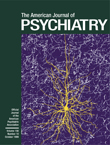In a valley in the Andean Cordillera is Popay´n, the capital of the province of Cauca, Colombia. Rodrigo Muñoz, the son of a judge and the grandson of a powerful and charismatic attorney, was born and raised in Popay´n, making Dr. Rodrigo Muñoz the first APA President from the Southern Hemisphere. Rod’s grandfather was a dramatic revolutionary figure who was very much revered by the people. It appears that the seeds of dramatic change which the APA experienced under Rod’s leadership were sown in the rich soil of this heritage. Rod’s mother has also been a powerful influence. She was certain that Rodrigo’s destiny was to be an outstanding student en route to a very successful career, and Mrs. Muñoz’s convincing certainty and Rod’s dedication and hard work ensured that this vision became a reality. Rod’s two brothers, Christian, a sociologist, and Diego, a Superior Court judge, and his sister Lucy, a paralegal, all live in Colombia; a second sister, Consuelo, a health care administrator, lives in California.
After receiving his M.D. degree from the University of Cauca and working for a brief time at a mental hospital in Medellín, Rodrigo emigrated to Connecticut. He began his psychiatric residency training in a hospital affiliated with Yale University, where he came under the influence of Daniel X. Freedman, APA’s 110th President. Recognizing Rod’s desire for continued training in a setting that emphasized psychiatry as a medical discipline, Freedman recommended Washington University in St. Louis. Rodrigo was very energized in that program and has frequently remarked that the 5 years he spent in St. Louis were a highlight of his professional life. In that setting Rodrigo’s engagement with what we now call evidence-based medicine began to flower. He developed and has maintained a very active interest in nosology, and along with Feighner and others co-authored the 1972 seminal paper in the Archives of General Psychiatry on diagnostic criteria for use in psychiatric research. This work was the forerunner of our criteria-based DSMs.
In 1970 Rodrigo’s decision to expand his clinical work led him and his wife and their two small children—Roddy and Lisa—to Sheboygan, Wis., where Julie, their third child, was born. Rod very quickly became extremely active clinically; in addition to a private practice, he directed an alcohol and substance abuse program and also a geriatric program.
Tragically, in 1974 his first wife died of an intracranial hemorrhage, and Rod and his three children, ages 9, 5, and 2, moved to California. In 1977 Rodrigo met Alicia, who has been a true partner in his personal as well as professional life over these 22 years. At times assisted by Anne, her twin sister, Alicia has herself played a major role in several psychiatric organizations and has endeared herself to many of our colleagues throughout this country and abroad.
Rodrigo’s and Alicia’s daughter Lisa graduated from George Washington University and is an assistant district attorney in Manhattan, and their daughter Julie received a master’s degree at San Francisco State University and works in marketing and communications. Their son Roddy, a graduate of San Diego State University with a major in anthropology, works in the communications field in San Diego.
For 30 years Rod’s intertwined clinical and research interests have been very broad. His major publications have explored many aspects of the biopsychosocial paradigm, all with a focus on what will be of benefit to the clinician and the patient. Topics have included affective disorders, anxiety disorders, eating disorders, illnesses of the elderly, children, and postpartum disorders. His pharmacologic studies have focused on antipsychotics, antidepressants, and anxiolytics. He has also published important papers on the workforce, international medical graduates, and cultural issues. Often these publications seem to be ahead of their time. In 1972 Rodrigo Muñoz was co-author of a visionary article on violence.
Rod’s scholarship is not limited to medicine. He is a serious student of American history, and many individuals have lost a bet with him trying to match his knowledge of details concerning the presidents of the United States.
In addition to his scholarship, Rodrigo Muñoz is an excellent teacher and an outstanding role model. He has received the Distinguished Clinical Teacher Award of the University of California, San Diego, where he is Clinical Professor of Psychiatry. He has also received the Outstanding Mentorship Award given by the California Medical Students Association.
Rodrigo Muñoz is a hero to many international medical graduates and minority physicians, whose issues have consistently been his interests and his causes. Grandfather Muñoz would be proud indeed of Rodrigo’s passion, resoluteness, courage, and effectiveness as he has pursued these issues and precipitated meaningful change.
Outstanding scholar and teacher, yes; but Rodrigo’s major identification is as a clinician, which in his vision includes research and education. Hence his choice for the theme of the 1999 APA annual meeting: simply and elegantly, “The Clinician.” Within minutes—often, seconds—of beginning most conversations, Rod is referring to patients: his patients, our patients, their problems, their strengths, and their needs. From this burning commitment flows an intense advocacy that has been heard and felt across this country and beyond.
For two decades Rodrigo Muñoz has had a major impact on the American Psychiatric Association and a number of other psychiatric and medical organizations. Rod is an active member of six committees of the San Diego and California Medical Associations. Under Rodrigo’s presidency APA had a remarkable year. A new Institute on Research and Education was created, new membership strategies were implemented, all of the councils, committees, and components were reviewed, and major reorganization occurred. The Foundation was restructured. All publishing activities of the organization were reconfigured. There was reallocation of the major assets of the Association. Evidence-based approaches to clinical care took a major leap forward with the publishing of our first Quality Indicators, complementing our Practice Guidelines.
Truly this was a remarkable year under the leadership of a remarkable person, a scholar, teacher, advocate, and clinician, APA’s outstanding 127th President, Dr. Rodrigo Muñoz.

